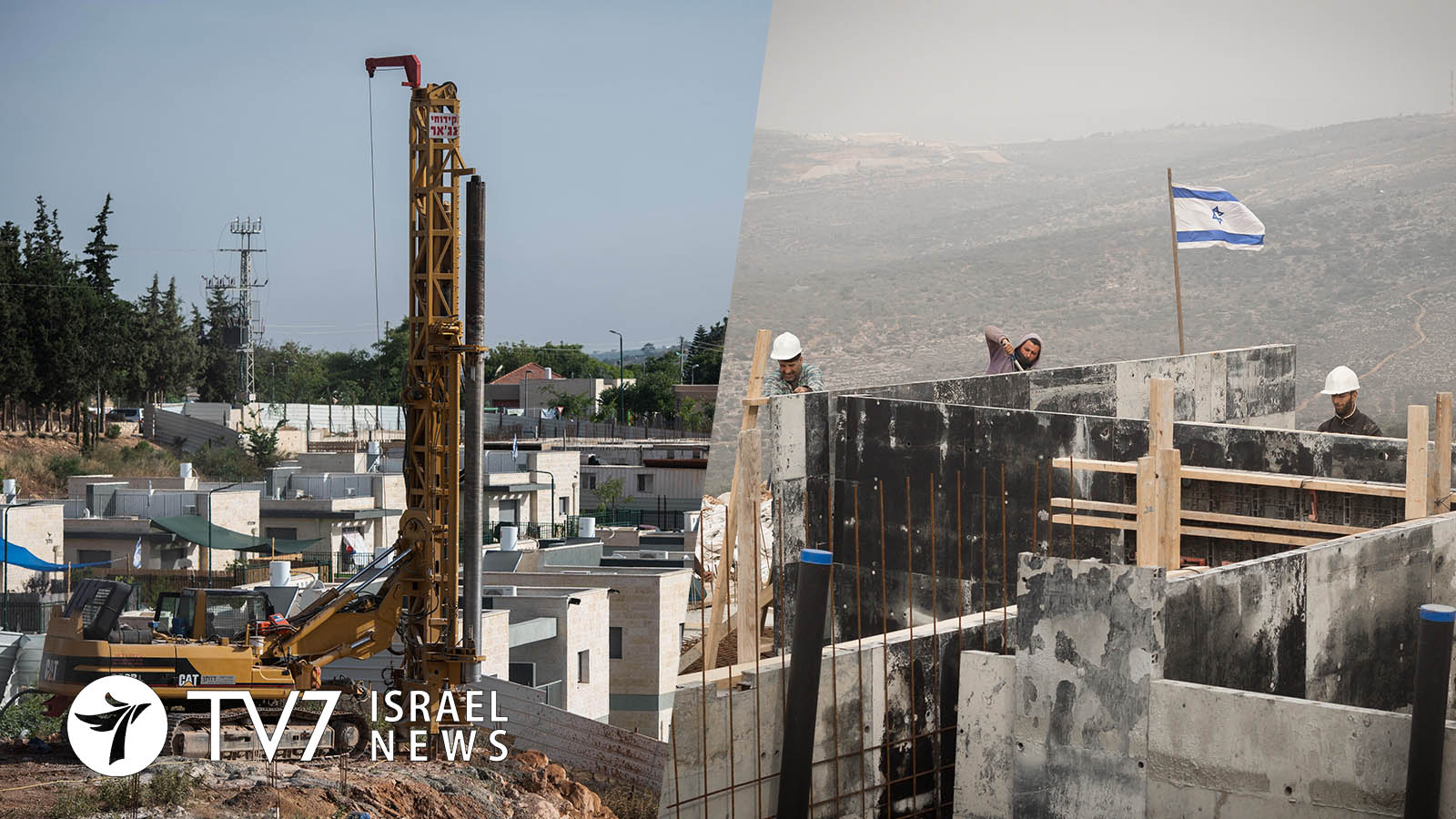Israel’s Civil Administration Higher Planning Committee (HPC) has given final approval for the construction of 1,313 new housing units at several settlements.
The move marks the first such decision since Israel’s signing of the Abraham Accords to normalize ties with the Arab Gulf states of Bahrain and the United Arab Emirates. It also signals the end of an 8-month de facto freeze on building new homes in the Biblical Jewish homeland of Judea and Samaria.
853 additional units were also advanced but have yet to be formally green-lighted by the HPC, which last met in February. The committee, which generally meets on a quarterly basis, repeatedly delayed and then canceled its last slated meeting in May without explanation. According to then-Knesset Speaker Yariv Levin, the unofficial moratorium was imposed by the Likud Party to which he belongs and is lead by Prime Minister Benjamin Netanyahu; in an effort to gain support from the United States for Israel’s quest at that time to extend sovereignty over significant sections of the West Bank and the Jordan Valley.
In late August, the Yesha Settlers Council angrily accused Netanyahu of silently sidelining growth in the territories to promote the normalization of ties with the UAE, which had been revealed in a surprise announcement on 13 August. “For more than half a year not a single housing unit has been approved in the area, and we haven’t been given a final date for the convening of the committee. We now find ourselves in the midst of a construction freeze in Judea, Samaria, and the Jordan Valley,” read a Yesha statement, underscoring that, “it is unacceptable that we have to wait half a year for building permits, and we demand that the Prime Minister convene the committee immediately.”
Alternate Premier and Defense Minister Benny Gantz expedited the issue by sending a formal request to Netanyahu on 6 September to authorize HPC approval of some 5,000 new housing units in Judea and Samaria.
Community leaders are greeting the end of the de facto freeze with enthusiasm. According to a statement released by the Gush Etzion Regional Council, the new units will be built in the towns of Pnei Kedem, Kfar Eldad, Metzad and Mount Gilo.
Gush Etzion Regional Council Head Shlomo Ne’eman stressed that, “the mission of developing the communities in Judea and Samaria continues to be one of the key issues for the State of Israel and the entire nation in this era, and we are grateful for the right to be at the forefront here in Gush Etzion.” He then stressed that, “sometimes we take our Prime Minister to task, which we feel is justified, as a result of our disappointment in postponing the application of sovereignty over our country,” adding, “But now something tangible is happening – we are building and developing our communities.”
“Sovereignty isn’t just about legal documents as important as they may be,” said Ne’eman, adding that, “Sovereignty is about more and more Jews who establish their homes in the land of their ancestors for now and forever. And for that, a big thank you and congratulations are due to Prime Minister Netanyahu, who despite being busy with his intense involvement in current issues, is also advancing strategic plans to strengthen our hold on Judea and Samaria.”
The Beit El settlement announced that it will be home to 350 of the new units, and hailed the HPC decision as “a tremendous achievement.”
Peace Now, an Israeli leftist settlement watchdog group, condemned the housing projects; and accused Netanyahu of “moving ahead at full steam toward solidifying the de facto annexation of the West Bank.”
The development also drew an angry response from Palestinians, who seek to establish a state in the West Bank, Gaza and East Jerusalem. “We urge the international community to intervene immediately to stop this settlement madness, which destroys any chance for a genuine peace process,” stated Nabil Abu Rudeineh, who is one of the spokespeople for Palestinian President Mahmoud Abbas.
Both Jerusalem and Washington reject the view held by many in the international community that “settlements” built by Israel on land conquered in the 1967 Six Day War is “illegal” or “an obstacle to peace with the Palestinians.”
Israel cites historical and biblical links to the West Bank, which is inhabited by about 450,000 Jewish residents and 3 million Palestinians.
